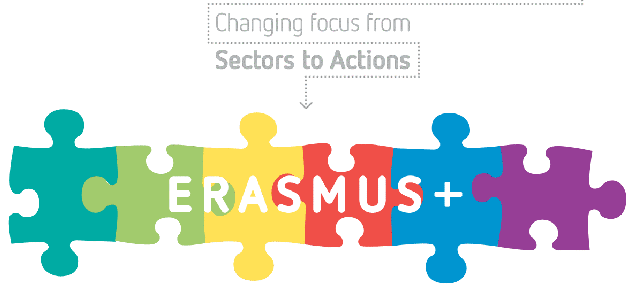Budgets for the EU’s new mobility and science and research programmes have been officially approved showing significant increases for both despite the EU facing its first real terms budget cut this year.
News and business analysis for Professionals in International Education
Have some pie!
Erasmus+ and Horizon 2020 budgets finalised

The Erasmus+ programme which consolidates the EU’s existing mobility programmes has been allocated €14.7 billion and €70.2 billion has been set aside for innovation and research under the new Horizon 2020 programme.
A pilot loan scheme benefiting Masters students has also been introduced but student groups have voiced concern that it might result in brain drain across regions in Europe.
Up to 15,000 non-EU researchers will benefit from grants available through Horizon 2020
Though the budget for the new Erasmus+ has increased by 40% compared to that of the previous Erasmus scheme, it has decreased during MFF (Multiannual Financial Framework) negotiations from the €16 billion proposed in July. This marks a further reduction from February’s provisional €19 billion figure.
The Horizon 2020 budget remains unchanged from earlier proposals, around €15 billion more than that of the previous Framework Programme 7 initiative.
Erasmus+ will incorporate the existing Lifelong Learning schemes, Youth in Action and five international cooperation programmes and according to the European Commission, will support two million higher education and 650,000 vocational training students.
It will provide grants for more than 500,000 young people to volunteer abroad or take part in exchanges and enable 800,000 education staff and youth workers to teach or train abroad.
The increase in Erasmus+ funding “demonstrates the EU’s commitment to education and training”
Androull Vassiliou, Commissioner for Education, Culture, Multilingualism and Youth, said that the increase in Erasmus+ funding “demonstrates the EU’s commitment to education and training”.
“Erasmus+ will also contribute to the fight against youth unemployment by giving young people the opportunity to increase their knowledge and skills through experience abroad,” she added.
Both programmes will for the first time include funding for extra-European staff, student and researcher mobility, which is expected to reach up to 135,000 learners and educators.
Additionally, up to 15,000 non-EU researchers will benefit from Marie Skłodowska-Curie Actions: grants which are available through Horizon 2020 to researchers regardless of their nationality or field of research.
Joanna Newman, Director of UK HE International Unit (IU) commented that European cooperation should not come at the expense of forging links with other non-EU countries. “Erasmus+ recognises this and puts Europe at the heart of internationalisation.”
“Erasmus+ puts Europe at the heart of internationalisation”
However, according to IU, ongoing internal negotiations might result in the international dimension of Erasmus+ facing minor budget changes.
The pilot European Master Loan Guarantee Facility that the European Commission says will benefit 200,000 Masters students has drawn criticism from the European Students Union (ESU). Rok Primozic, Chairperson of ESU, called the budget allocated to the loan scheme “questionable”.
“It will set a highly negative precedence for the funding of mobility and education programmes, not to mention a possible brain drain across regions in Europe,” he said.
Despite his concerns, Primozic added that the loans are a small part of the overall Erasmus+ budget. “The overall achievements in the programme that are aimed at students are very much in the interest of students,” he said.
Still looking? Find by category:



One Response to Erasmus+ and Horizon 2020 budgets finalised